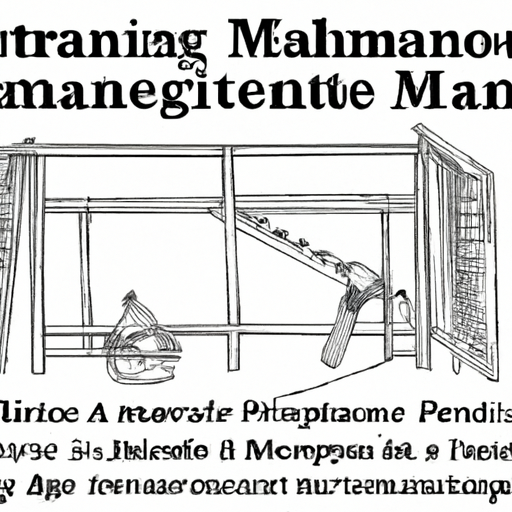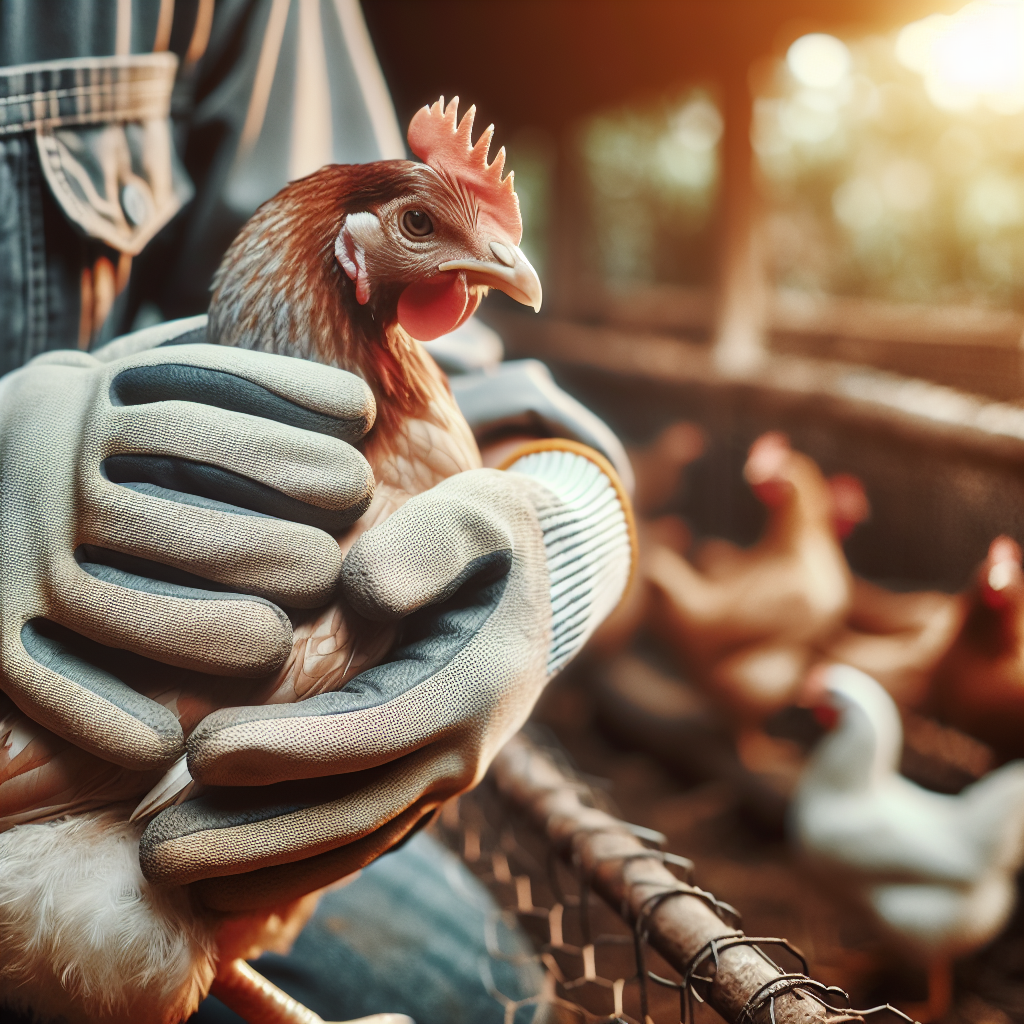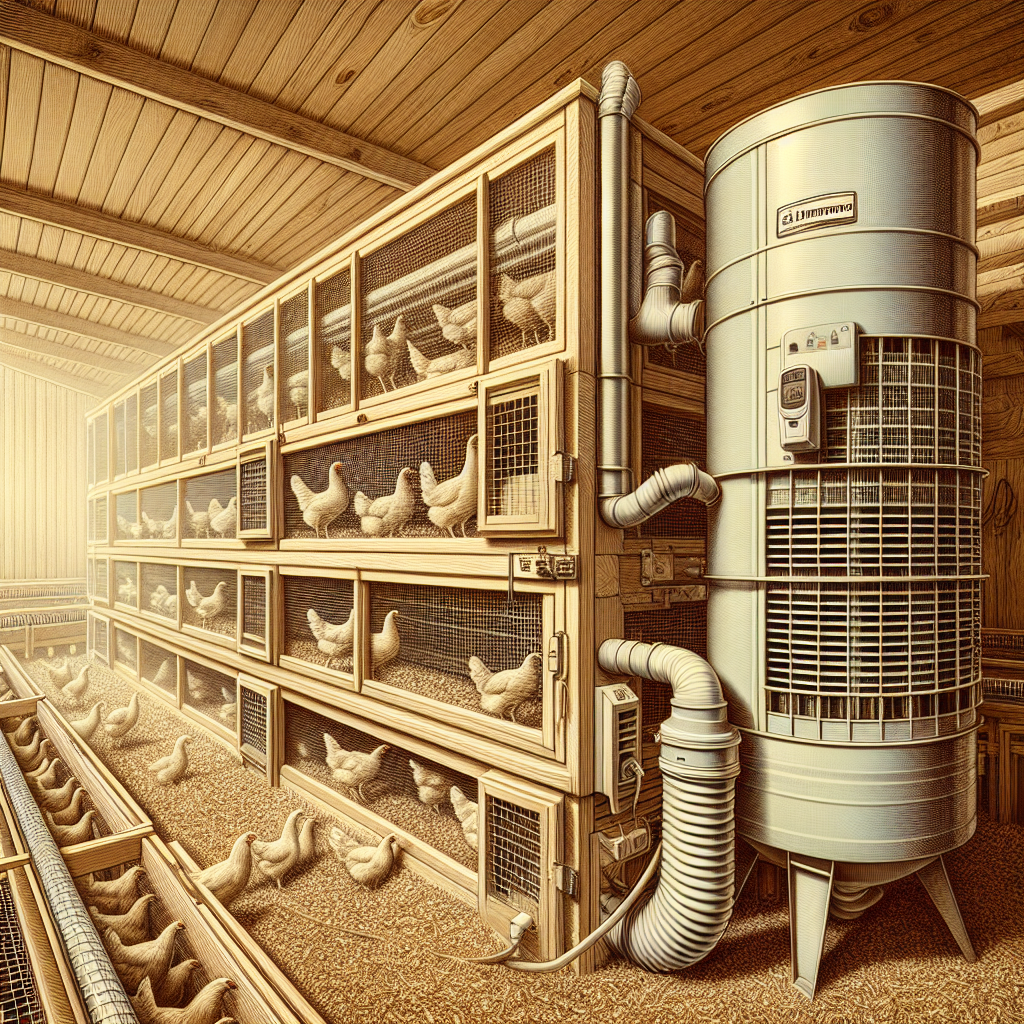Maintaining the durability and longevity of your coop is essential to keep your feathered friends happy and healthy. Regular maintenance not only ensures the structural integrity of your coop but also prevents potential issues that may arise over time. By taking a proactive approach and implementing a few key strategies, you can extend the lifespan of your coop and provide a safe and comfortable home for your flock. From inspecting for signs of wear and tear to keeping it clean and well-ventilated, these simple maintenance practices will keep your coop in tip-top condition for years to come.
Importance of Coop Maintenance
Keeping your coop well-maintained is crucial for ensuring the durability and longevity of your chicken house. Regular maintenance not only helps create a clean and safe environment for your chickens but also prevents potential health issues and structural problems. By implementing a consistent maintenance routine, you can address any issues promptly, extend the lifespan of your coop, and provide a healthy and comfortable space for your feathered friends.
Regular Cleaning
Regularly cleaning both the interior and exterior of your coop is essential to keep it in optimal condition and to maintain a healthy living environment for your chickens.
Cleaning the coop interior
Cleaning the coop’s interior involves removing any debris, old bedding, and accumulated droppings. Scoop out the droppings and dispose of them properly. Dust off the surfaces, including nesting boxes, perches, and roosting bars. Replace any soiled bedding material with fresh material to ensure cleanliness and prevent odors.
Cleaning the coop exterior
The coop’s exterior should be cleaned to remove dirt, grime, and any buildup that may attract pests or harbor bacteria. Use a mild detergent or environmentally friendly cleaning solution to wash the exterior surfaces, making sure to rinse thoroughly. Pay close attention to crevices and corners where dirt can accumulate.
Disinfecting the coop
Regularly disinfecting your coop is crucial for preventing the spread of diseases and parasites. Use a suitable disinfectant approved for poultry use, following the instructions carefully. Pay particular attention to the areas where chickens come into direct contact, such as perches and nesting boxes. Allow sufficient drying time before reintroducing your chickens to the coop.
Inspecting and Repairing
Inspecting your coop periodically allows you to identify any signs of damage or wear, ensuring prompt repairs and preventing further deterioration.
Inspecting for damage or wear
Thoroughly inspect all parts of your coop, including walls, flooring, roof, doors, and windows. Look for cracks, holes, loose boards, or signs of rotting wood. Check for loose or missing screws, nails, or other fasteners. Additionally, inspect the hardware cloth or wire mesh for any tears or gaps that could provide access to predators.
Repairing any structural issues
If you discover any structural issues during the inspection, it is important to address them promptly. Replace damaged or rotting wood, reinforce weak spots, and secure loose components. Repair or replace any broken or faulty hardware, such as hinges or latches. By fixing these issues early on, you can prevent further damage and ensure the stability of your coop.
Replacing damaged or rotting wood
If you notice any signs of damaged or rotting wood during your inspection, it is crucial to replace the affected areas. Rotting wood can compromise the structural integrity of the coop and provide an environment for pests to thrive. Replace the rotten wood with new, treated lumber to ensure the longevity of your coop.
Ensuring Proper Ventilation
Proper ventilation is vital for maintaining a healthy coop environment by ensuring sufficient air circulation, reducing moisture levels, and preventing the buildup of harmful gases.
Installing sufficient vents
To ensure proper ventilation, install sufficient vents in your coop. Vents should be strategically placed to allow fresh air to enter while allowing stale air to exit. Consider the size and number of your vents to create an optimal airflow within the coop.
Cleaning and maintaining vents
Regularly clean the vents to prevent obstructions and ensure unobstructed airflow. Remove any debris or dust that may accumulate on the vent covers or screens. Inspect for any damage or signs of wear and repair or replace them as needed.
Controlling Moisture
Controlling moisture levels inside the coop is crucial to prevent the growth of mold, mildew, and bacteria, which can lead to respiratory issues and other health problems for your chickens.
Preventing water leakage
Inspect the roof, walls, and flooring for any signs of water leakage. Ensure that the roof is well-sealed and in good condition, preventing rainwater from entering the coop. Repair any leaks immediately to prevent water damage and moisture buildup.
Clearing drainage systems
If your coop has a drainage system, such as gutters or downspouts, make sure they are clear of debris and effectively divert water away from the coop. This will prevent excess moisture buildup and potential damage to the coop’s structure.
Using moisture-absorbing materials
To control moisture levels in the coop, use moisture-absorbing materials such as pine shavings or straw as bedding. These materials can help absorb excess moisture and provide a dry and comfortable environment for your chickens. Regularly replace soiled bedding to maintain cleanliness and freshness.
Maintaining Flooring
The coop’s flooring plays a crucial role in ensuring the comfort and hygiene of your chickens. Regular maintenance of the flooring is essential for the well-being of your birds.
Replacing or repairing flooring
Inspect the flooring for any signs of damage, such as cracks or rotting. If you notice any issues, repair or replace the compromised sections promptly. Ensure that the flooring is secure and supportive for your chickens to walk on.
Adding bedding material
Adding suitable bedding material to the coop floor provides comfort, insulation, and absorbs moisture. Choose bedding material such as straw or wood shavings that are easy to clean and replace regularly to maintain a healthy environment.
Cleaning the coop floor
Regularly clean the coop floor by sweeping or scraping away any dirt, debris, or soiled bedding. Thoroughly disinfect the floor periodically to eliminate bacteria and parasites. Allow the floor to dry thoroughly before adding fresh bedding.
Securing Doors and Windows
Properly securing the coop’s doors and windows is crucial for preventing predators from gaining access and keeping your chickens safe.
Checking hinges and latches
Regularly check the hinges and latches on doors and windows to ensure they are in good working condition. Tighten loose screws or replace faulty hardware to ensure that doors and windows can be securely closed.
Fixing gaps or cracks
Inspect the frames and edges of doors and windows for any gaps or cracks that could allow predators to enter. Seal these openings with weatherstripping, caulking, or other suitable materials to prevent any unauthorized entry.
Implementing Predator Protection
Protecting your coop from predators is vital to ensure the safety and well-being of your chickens.
Installing strong fencing
Install strong and sturdy fencing around the coop perimeter to prevent predators from digging under or climbing over. Choose fencing material that is resistant to chewing or breaking, such as welded wire or hardware cloth.
Securing openings and gaps
Inspect the coop for any openings or gaps that could provide access for predators. Prevent predators from entering by covering these openings with secure wire mesh or hardware cloth. Ensure that there are no loose or damaged sections that predators could exploit.
Using predator deterrents
Consider using deterrents such as motion-activated lights or sound devices to deter predators from approaching the coop. Additionally, implementing a secure locking system for doors and windows can provide an extra layer of protection.
Monitoring Coop Temperature
Maintaining an optimal temperature inside the coop is crucial for your chickens’ health and well-being, especially during extreme weather conditions.
Insulating the coop
Insulate the coop walls and roof to regulate the temperature and provide protection against excessive heat or cold. Use insulation materials such as foam boards or fiberglass batts to help maintain a comfortable environment for your chickens.
Controlling ventilation for temperature
In addition to insulation, control the coop’s ventilation to regulate the temperature. During hotter months, ensure that there is proper airflow to prevent heat buildup. In colder months, adjust the ventilation to prevent drafts while allowing for fresh air exchange.
Using heat sources in winter
During cold winter months, provide heat sources, such as heat lamps or heaters, to keep the coop warm. Ensure that any heat sources are securely installed and placed away from combustible materials to prevent fire hazards. Monitor the temperature to ensure it remains within a safe and comfortable range for your chickens.
Regular Egg Collection
Regularly collecting eggs from your coop not only ensures their freshness but also helps prevent potential issues such as egg breakage or brooding.
Collecting eggs daily
Collect eggs from the nesting boxes on a daily basis. Leaving eggs in the coop for extended periods can lead to breakage or invite brooding behavior in your chickens. Establish a routine to gather eggs each day to maintain their quality.
Inspecting, cleaning, and storing eggs
After collecting the eggs, inspect each one for any signs of damage or abnormalities. Discard any cracked or dirty eggs to prevent contamination. Clean dirty eggs with a soft cloth or brush if necessary, but avoid submerging them in water as this can remove the protective bloom. Store the cleaned eggs in a cool and dry place, away from direct sunlight, to preserve their freshness.
By following these maintenance practices, you can ensure the durability and longevity of your coop while providing a safe and comfortable environment for your chickens. Regular cleaning, inspecting, and maintaining various components of the coop will not only benefit your chickens’ health but also contribute to your own satisfaction and enjoyment as a backyard chicken owner.




